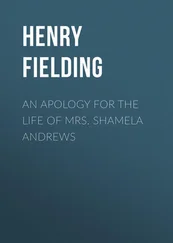As soon as she was old enough to understand, Georgina’s father harped on the connection between these great events and her own birth. There was nothing particularly teasing about it either. Both parents made so much of the coincidence that she confessed later, ‘It filled my childish fancy with a vague idea of superiority and relationship with the Royal Family.’ Such ideas, which are normally no more than a harmless family joke, are supposed to wane with the passing of time: unfortunately, this one stuck. Georgina was to live her whole life with the unquantifiable feeling of superiority derived from that day. Encouraged by her manically snobbish parents, she was, she believed, blessed by greatness in some way; at the very least born to a rank in society which furnished its own recommendations and which needed no apology or explanation. She was a full part of the old aristocratic supremacy and the same gentle zephyrs that blew on Victoria’s reign would also fill her sails. When things turned out rather differently – and it would be hard to imagine two less compatible Victorian histories than those of the Monarch and her subject – then the fault lay not in her but other people.
It was certainly a wonderful day on which to be born. All England was en fête . The King lay at Windsor, unloved and unregarded, while at Kensington Palace his niece received twenty-two loyal addresses delivered by hand from every part of the country. In the evening hundreds of noble guests attended a State ball where there was much quizzing of the short and excitable Victoria, who showed her gums rather a lot when she laughed. Once again, the King was conspicuous by his absence. Wellington had attended George IV in his last days and with his usual brutal candour let it be known round the room that the brother was in even worse plight. Lit by hundreds of candles, the noblest in the land gossiped on the white and gilt chairs set for their comfort. The sole topic of conversation was the future Queen.
Morgan Thomas and his heavily pregnant wife Louisa rode round London in their carriage that balmy May day, soaking up the atmosphere. Far from being at the centre of things, they had no part to play and were not invited indoors to any great house: they were faces in the crowd. True, Morgan had a stare that could shatter glass and a coat in the old fashioned colour described as ‘King’s blue’. His wife wore a bonnet in which a plume danced as proudly as any other lady’s, but their carriage would have given them away. There was a useful phrase in vogue to describe the aristocratic predominance: men and women of rank spoke of themselves as The Upper Ten Thousand. Morgan and his wife liked to believe they too were in that number – not angling to be admitted but already there and secure in their tenure. It was the deepest and most cherished of their fantasies. As evening approached, they crossed the river and rattled home to rural Clapham, where Georgina was born at a quarter to ten in the last of the summer light. For a few days and weeks there was anxiety in the nursery, for the Thomases already had a child, the sickly infant Cordelia. She died thirteen weeks later and was buried in Clapham Parish.
Georgina was destined to bear three surnames, but the first of these, Thomas, under which she was registered, is tied to a childhood that resolutely failed to budge from its anchorage in less progressive times. Her father was a William IV man, a Tory of the old stripe. At the time of Georgina’s birth, Morgan Thomas was thirty-five years old and as reactionary as any man in England. His wife was a hapless woman who liked to protest that she was not made for children and the family hearth. They were a strange couple, she by temperament as indecisive as her husband was truculent and hotheaded. Morgan’s position in society was a commonplace of the times: he was a lawyer never intending to practise law. His gentlemanly status had been expressed to his own satisfaction in a book published in 1834 by a writer called Medwin. ‘Judges of the Exchequer were designated thus: one as a gentleman and a lawyer; another as a lawyer and no gentleman.’ Morgan was always ready to insist he was of the first kind. He had found and married his rather plain wife in Naples three years earlier, and if the venue was romantic, the circumstances were not. Both bride and groom were in their thirties and whatever hand life had dealt them it did not include friends and confidants. One unhappy and solitary human being was joined with another. Much later, at the time of his death, Morgan’s younger brother George wrote an enigmatic letter to Louisa.
I ignore for the moment that I have treated you and yours with the greatest kindness, without mentioning the way I plugged the gap when you got married, without which it would not have taken place. I have always come to your aid when the means permitted and it was only after Morgan’s gross and insulting letters that I broke off relations, necessarily.
The help that was given the newlyweds was almost certainly financial, but may have included moral support for an unwelcome or overhasty union. These Thomases were turbulent and aggressive opportunists when it came to marriage and Morgan may have been thought to have chosen his wife unwisely. It was a family fiction that he had courted her for ten long years – it seems more likely that he met her in Italy by chance. Louisa was once described by Count D’Orsay, the supreme arbiter of London taste and fashion, as ‘the offspring of Punch and Venus’. The poor woman interpreted this as a compliment. To marry so late and in such a venue as the British Embassy, where otherwise only naval officers spliced the knot, might indicate to the sharp-witted or malicious observer a sudden inheritance on the part of the parentless bride. In this at least Morgan was his father’s child. The marriage was much more favourable to him than to the luckless Louisa, and she was to pay a very heavy price.
The belief that he was a person of importance went very deep with this strutting, vexatious man. It was a matter of pride that his family had some mention in Burke’s Landed Gentry , the second edition of which was brought out in the same year of 1837, for he was descended from those ancient Thomases who owned considerable land near Llanelli. The Lletymawr estates had been in the possession of his family since an honoured forebear Sir Hugh Trehearn followed the Black Prince to Poitiers. Morgan liked to emphasise this glorious ancestry. Perhaps, as the five hundredth anniversary of the Battle of Poitiers approached, he was inclined to make too much of it, yet it was easy to see why. For the first and last time in history, a French king had been taken in battle; more to the point, the entire chivalry of France had either been slain or surrendered. It was a huge payday for the Prince’s army. The lowliest archer had three or four prisoners to ransom and Sir Hugh and his little contingent went back to Wales far richer men than when they left. And there they languished.
Morgan’s great-grandfather gave the family its English connection. In 1745 he married an heiress of the Goring family of Frodley in Staffordshire. Through the female line, the Gorings traced their ancestry back to Edward III, bringing Morgan to the point where he could assure his impressionable daughter that her family ‘would become entitled to the throne of England if anything should happen to the ruling family.’ She believed him. The more recent past was much less romantic. At the turn of the century, Morgan’s father, Rees Goring Thomas, married Sarah Hovel of Cambridge. This was almost certainly an undergraduate romance, spiked with a hard-headed opportunism, the like of which Georgina was one day to demonstrate herself. Hovel was a name well known in Cambridge, but not for its aristocratic connections. Thomas Hovel was a haberdasher and his brother John a saddler. These two had by diligence and hard work acquired property in the market area of town, as well as a parcel of fenland on the road to London on which the Leys School now stands. Rees Goring Thomas, of the illustrious Welsh ancestry, made himself comfortably secure by marrying the haberdasher’s daughter – the last parcel of Cambridge land he acquired through marriage was sold out of the family in 1878. Rees took his bride out of Cambridge and into Surrey, where the family had bought the title to a small manor called Tooting Graveney, in the middle of which was erected a property called Tooting Lodge. It was in this house that Georgina was born.
Читать дальше
![Brian Thompson A Monkey Among Crocodiles: The Life, Loves and Lawsuits of Mrs Georgina Weldon – a disastrous Victorian [Text only] обложка книги](/books/704922/brian-thompson-a-monkey-among-crocodiles-the-life-cover.webp)











